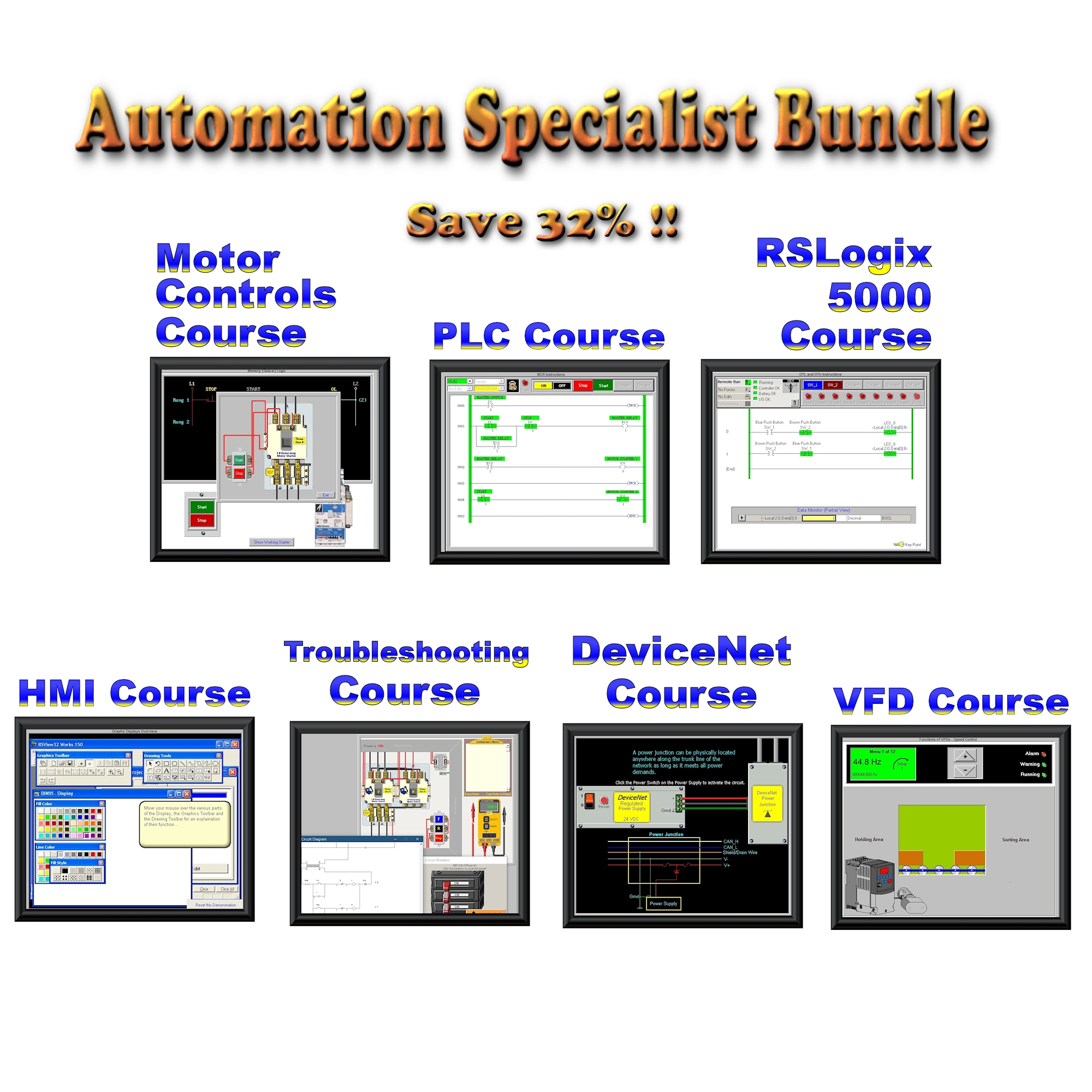
Basic PLC Knowledge Assessment
Basic PLC Knowledge :
The basic PLC test has Eleven questions created by a visitor, primarily a PLC vocabulary test. PLC Basics FAQ is also included as a bonus.
Please consider our training while here ...

Learn more with our Automation specialist Course Bundle. Bundle and Save 32%! Courses never expire. They are there when it"s time to refresh.
Basic PLC Knowledge test details:
( 11 Questions )
A PLC (Programmable Logic Controller) is the type of computer that controls most machines today. The PLC is used to control AND troubleshoot the machine. The PLC is the brain of the machine. Without it, the machine is dead. Maintenance technicians are brain surgeons working on it.
PLC Basics FAQ
Below are the 5 most frequently asked questions about PLC Basics, with answers.
What is a PLC?
A PLC [Programmable Logic Controller], is a rugged industrial computer. It's used to control manufacturing processes and machinery. It's designed for harsh industrial environments. It is programmed to do many tasks. It provides real-time control and automation.
How are PLCs programmed?
Specialized software configures and programs PLCs with precision. This software creates and edits ladder logic. It also edits function block diagrams and structured text. These programs are then downloaded to the PLC to define its behavior and operation.
What are the advantages of using PLCs?
PLCs have many advantages. They include flexibility in controlling equipment. They are tough for harsh environments and work in real-time. They are easy to reprogram and fit well with other systems and devices.
How do PLCs communicate with other systems?
PLCs can talk to other control systems and devices. They use protocols like Ethernet/IP, Modbus, and Profibus. This allows for smooth incorporation into intricate industrial automation systems.
What are the typical applications of PLCs?
Manufacturing and industrial automation often rely on PLCs. They use them to control assembly lines. They also use them to control robots, HVAC systems, conveyors, and other machines. Their flexibility and adaptability make them essential. Many industrial processes use them.
Published:
